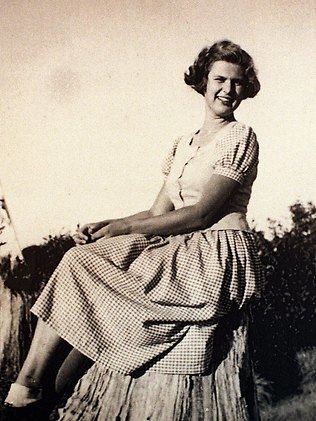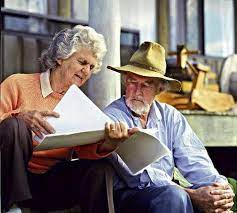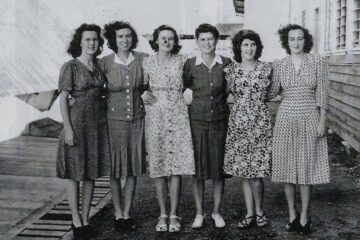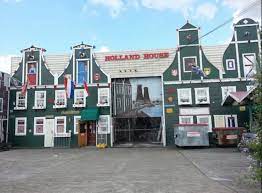
Hilma Dymphna Lodewyckx (1916-2000) was the daughter of Augustin Lodewyckx and Anna Sophia Hansen. She was born in Stellenbosch, South Africa and later moved to Melbourne, Australia with her family when her father was appointed lecturer at the University of Melbourne. She mainly used her middle name Dymphna.
Her father Augustin Lodewyckx was a scholar who had a strong interest in Dutch language and culture. He introduced Dutch as a university subject at the University of Melbourne, where he was a professor.
Dymphna Clark spoke Dutch at home.
Dymphna was a talented linguist and translator who worked for the Australian Broadcasting Corporation (ABC) as a producer of foreign language programs. She was also a skilled editor and translator of scholarly works, including the writings of her husband, the historian Manning Clark.
In addition to her work as a translator, editor, and producer, Hilma Dymphna was an accomplished poet and author in her own right. Her books include “Poems” (1964) and “The Little Sea-Horse” (1970). She was also active in the Melbourne literary scene, serving as a member of the Victorian branch of the Fellowship of Australian Writers and the Lyceum Club.
Dymphna married Manning Clark in 1942, and they had six children together. She died in Melbourne in 2000.
Manning Clark

Manning Clark (1915-1991) was an Australian historian and author known for his multi-volume work, “A History of Australia”, which covers the nation’s social, political, and cultural development from its earliest days to the present. Born on March 3, 1915, in Sydney, Australia, Clark attended Melbourne High School before studying at the University of Melbourne where he was awarded a Bachelor of Arts in 1934. He later completed a Master of Arts in history in 1938 and a Doctor of Letters in 1950.
Clark’s career in academia began as a lecturer at the University of Melbourne in 1939, and he later served as Professor of History from 1949 to 1975. His most famous work, “A History of Australia”, was published in six volumes between 1962 and 1987 and became a definitive text on Australian history. Clark was also a controversial figure due to his left-wing political views and advocacy for social justice causes, which often drew criticism from conservative circles.
Clark was appointed a Companion of the Order of Australia in 1975 and received numerous other honors during his lifetime. He died on May 23, 1991, in Melbourne, Australia.
See also:


